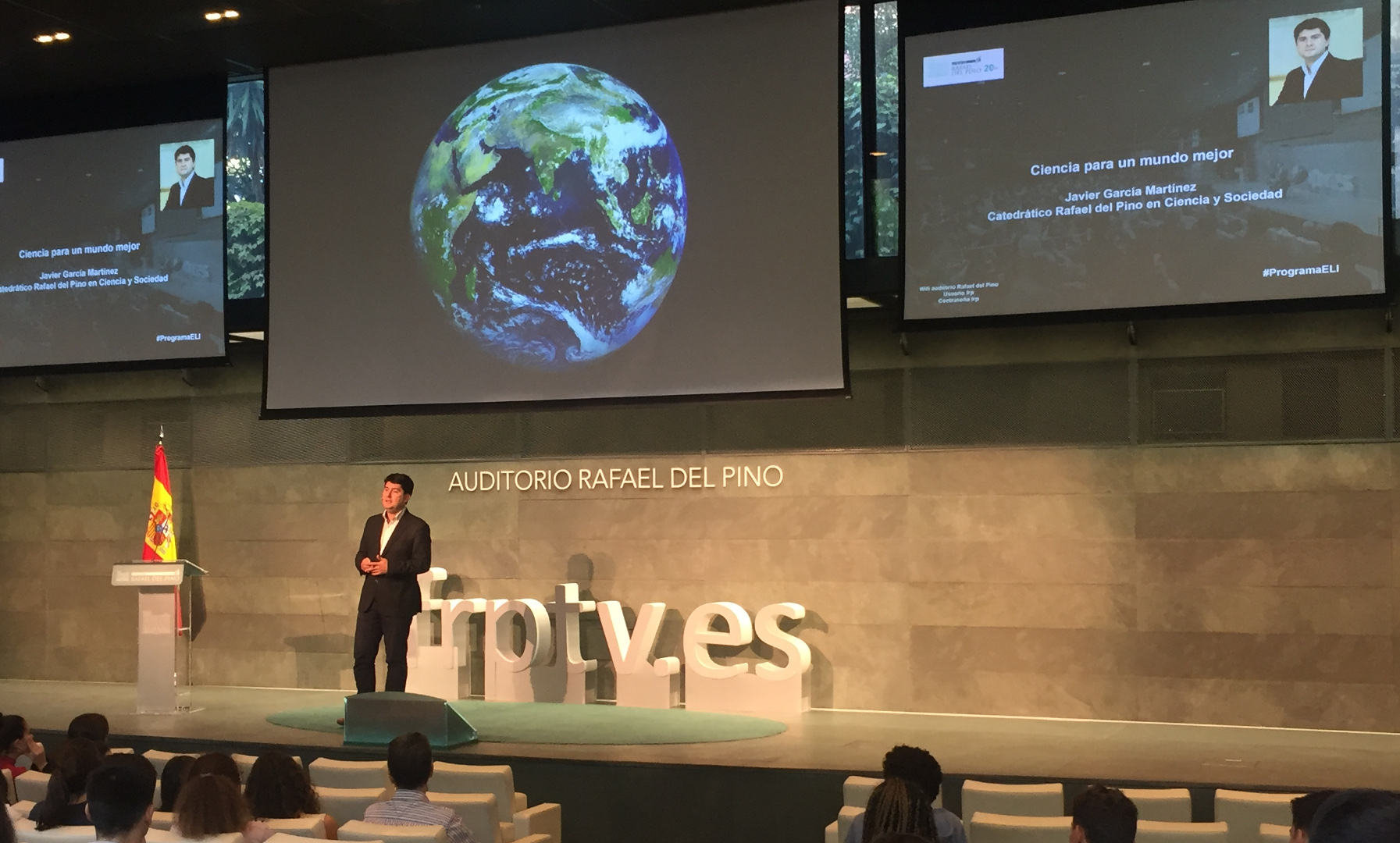
In front of an audience of students attached to the ELI programme (entrepreneurship, leadership and innovation) of the Rafael del Pino Foundation, the head of the Chair of Science and Society and president elect of the IUPAC (International Union of Pure and Applied Chemistry) was committed to science as a lever for a better world.
García used the celebration of the International Year of the Periodic Table to connect scientific findings on chemical elements with some of the global goals for human development set by the United Nations.
For example, he explained the Haber-Bosch catalytic process for the industrial synthesis of ammonia. This scientific discovery, which earned the two researchers who gave it its name the Nobel Prize in Chemistry at the beginning of the 20th century, led to the agricultural revolution by making it possible to obtain fertilisers on a large scale. An event that demonstrates how science can bring about major transformative processes that have contributed and can continue to contribute to the achievement of the Sustainable Development Goals (SDGs).
In this case, the incidence of ammonia synthesis represents a determining factor for objective number 2 (Zero hunger).
His presentation also touched on other more recent scientific discoveries. Among them, the ability of new materials to increase the efficiency of solar cells and offer the energy industry opportunities to contribute to SDG 7 (Clean and Sustainable Energy).
The role of science in the face of major global challenges
During his presentation, held in the conference room of the Rafael del Pino Foundation, Javier García related his personal experience as founder of the company Rive Technology and the scope that catalysis with zeolites has had for the oil industry.
In this case, the application of new materials obtained through technological innovation has resulted in a significant reduction of CO2 emissions generated by refining processes in the oil industry. An achievement that has an impact on goal number 13 (Climate action).
Finally, he gave a historical review of the main milestones that took place during the International Year of the Periodic Table, emphasising the dissemination and educational role that IUPAC has played.
The students of the ELI programme of the Rafael del Pino Foundation showed great interest in the subject and asked questions at the end of the talk, demonstrating the receptiveness of the young people to the encouragement of scientific vocations.
The Rafael del Pino Foundation offers the ELI Programme (Entrepreneurship, Leadership and Innovation) to the students of the Baccalaureate of Excellence and the International Baccalaureate of the Community of Madrid. Its aim is to give them the opportunity to study these three areas of knowledge in depth with renowned international experts.


